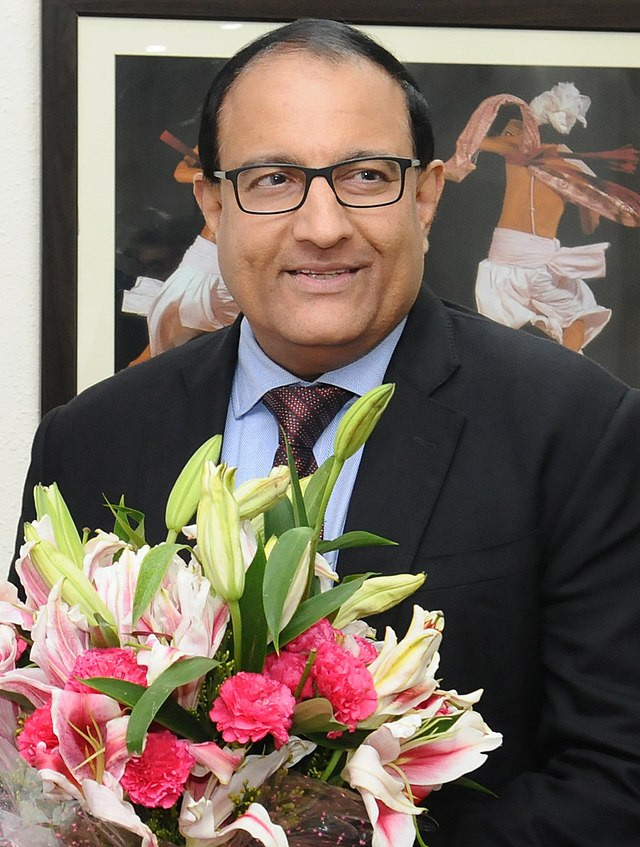In a rare and high-profile corruption case for Singapore, former cabinet minister S. Iswaran was sentenced to 12 months in prison on Thursday after pleading guilty to charges of obstructing justice and improperly receiving over $300,000 worth of lavish gifts. The case marks the first time in the city-state's history that a former cabinet member has been jailed, sending shockwaves through a country renowned for its clean and transparent governance.
Iswaran, who served as a cabinet member for 13 years and held key positions in trade, communications, and transport, was initially charged with 35 offenses. Of those, four counts related to the improper receipt of gifts from prominent businessmen, and one count was for obstructing justice during the investigation. The value of the gifts Iswaran received, which included tickets to prestigious events like English Premier League soccer matches, the Singapore Formula 1 Grand Prix, London musicals, and even a private jet ride, totaled more than $300,000.
The sentence handed down by the court was notably harsher than the six-to-seven-month term sought by prosecutors. Presiding judge Vincent Hoong explained that the prosecution's recommendation was "manifestly inadequate" given the severity of the offenses and their impact on public trust in Singapore's governance. "Trust and confidence in public institutions are the bedrock of effective governance, which could easily be undermined by the appearance that an individual public servant had fallen below the standards of integrity and accountability," Hoong said during sentencing.
Singapore, a financial hub with a well-deserved reputation for clean governance, has consistently ranked among the world's least corrupt nations. According to Transparency International's 2023 corruption perception index, Singapore was one of the top five least corrupt countries globally. The last corruption scandal involving a Singaporean minister occurred in 1986, and while that case never resulted in charges, it highlighted the city-state's rare encounters with government malfeasance.
Iswaran's arrest in July of the previous year sparked a national outcry and raised concerns about Singapore's high-ranking officials' ethical standards. The case centered on allegations that Iswaran, while serving as transport minister, had accepted extravagant gifts from businessmen, including property tycoon Ong Beng Seng. Ong, who owns the rights to the Singapore Grand Prix, is also a prominent figure in Singapore's business community. Iswaran had served as an adviser to the Singapore Grand Prix's steering committee. However, Ong has not been charged with any offenses, and the attorney general's chambers stated last week that it would decide whether to take action against him in due course.
The initial charges against Iswaran included corruption-related offenses. However, the attorney general's office eventually amended the charges, citing litigation risks in proving corruption beyond a reasonable doubt. The amendments resulted in charges of receiving gifts while serving as a public servant, rather than directly linking Iswaran to corruption. Despite the adjustment, Iswaran's sentencing reflects the gravity of his misconduct. As Judge Hoong noted in his ruling, the former minister held a position of high influence over business transactions, which made his actions particularly egregious.
During the investigation, Iswaran initially denied any wrongdoing and vowed to clear his name. However, last week he abruptly changed course and pleaded guilty to the five charges brought against him. The court permitted Iswaran to remain free on bail for a few more days to settle personal matters before beginning his prison sentence on Monday. Despite showing no visible emotion during the court proceedings, Iswaran's fall from grace has deeply affected public sentiment in Singapore.
The prosecution outlined how Iswaran, while still a public servant, had developed close relationships with influential businessmen, accepting gifts that went far beyond the bounds of professional conduct. These gifts, prosecutors argued, were attempts to curry favor with the former minister, particularly during his tenure as transport minister. The defense, however, maintained that there was no direct evidence that these gifts influenced Iswaran's decision-making.
Although Iswaran had previously enjoyed a distinguished career, his legal troubles and subsequent conviction have cast a shadow over his legacy. The Singapore government, which prides itself on being a model of efficient and ethical governance, has stressed that Iswaran's case is an isolated incident, and it remains committed to maintaining its high standards of integrity.




